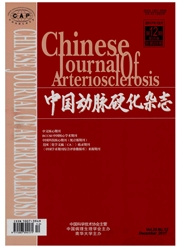

 中文摘要:
中文摘要:
目的研制特异性抗人血管内皮细胞膜蛋白的单克隆抗体,为深入研究血管内皮细胞的功能及血管内皮细胞与疾病的关系提供基础。方法以血管内皮细胞株为免疫原直接免疫Balb/c小鼠,采用B淋巴细胞杂交瘤技术,通过细胞酶联免疫吸附试验筛选分泌抗人血管内皮细胞膜蛋白的特异性单抗的阳性克隆后,将杂交瘤细胞株腹腔注射Balb/c小鼠诱生腹水。腹水中的单抗用蛋白质G琼脂糖凝胶-4B柱亲和层析纯化后,采用酶联免疫吸附试验、流式细胞术、免疫组织化学染色法及免疫印迹法对其特异性进行鉴定。结果获得了一株可稳定分泌抗人血管内皮细胞膜蛋白单抗的杂交瘤细胞株。特异性单抗NH-2亚型为IgG1,腹水NH-2效价为1×10^-6,含量为18.82g/L。NH-2与人血管内皮细胞株和原代培养的人脐静脉内皮细胞均有特异性结合,并可识别细胞裂解液还原条件下相对分子量为40kDa左右的蛋白多肽。NH-2对相应抗原具有高度的细胞特异性及组织特异性,在体内与正常组织的交叉反应少。结论成功制备了抗人血管内皮细胞膜蛋白的单抗,在血管内皮细胞的生物学功能及临床意义研究方面将具有潜在的应用价值。
 英文摘要:
英文摘要:
Aim To produce specific monoclonal antibody (McAb) against human vascular endothelial cell membrane proteins for investigating the functions and relation to disease of vascular endothelial cells. Methods McAb was prepared with classical hybridoma technique. Human vascular endothelial cell line(ECV304)was used to immunize female Balb/c mice 3 times at an interval of 4 weeks. On the third days after the third immunization, mice were sacrificed and spleen cells were harvested to prepare hybridoma cells with SP2/0 cells at the ratio of 10 to 1. Hybridoma cells were then cultured at 96 well plates for screening with cellular enzyme-linked immunoabsorbent assay (CELISA). Balb/c mice were intraperitoneally injected with the selected hybridoma cells. Ascites were collected and monoclonal antibodies were purified using fast protein liquid chromatography(FPLC),and its Ig class, subclass and titer were then determined respectively. The specificity of the yielded McAb was identified with CELISA, flow cytometry, ABC immunohistochemistry and immunoblotting. Results One line of hybridoma cells with high expression of specific McAb termed as NH-2 against vascular endothelial cell membrane protein was obtained. The Ig subclass of the McAb NH-2 was IgG1 and the titer of ascitic McAb was 1×10^-6. Furthermore, the content of ascitic McAb was 18.82 g/L. Flow cytometry, CELISA and western blot assays demonstrated that McAb NH-2 could specifically recognize antigen expressed on ECV304 and human umbilical vein endothelial cell(HUVEC). Meanwhile, the tissue specificity and cell specificity of antigen recognized by McAb NH-2 were identified better seprately by immunohistochemical ABC staining and flow cytometry. On the other hand, the molecular weight of antigen protein recognized by McAb NH-2 was about 40kD. Conclusions NH-2 can specifically recognize the natural antigen expressed mainly in vascular endothelial cells, which will potentially be usefull for investigation of the functions and clinic application values o
 同期刊论文项目
同期刊论文项目
 同项目期刊论文
同项目期刊论文
 Curcumin inhibits cellular cholesterol accumulation by regulating SREBP-1/caveolin-1 signaling pathw
Curcumin inhibits cellular cholesterol accumulation by regulating SREBP-1/caveolin-1 signaling pathw 期刊信息
期刊信息
